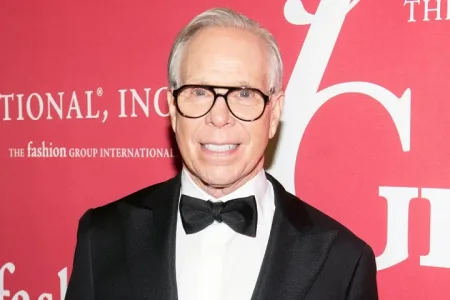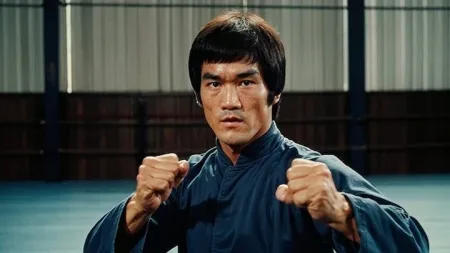Pablo Escobar Net Worth:In the annals of history, few names evoke as much fascination and controversy as Pablo Escobar. The notorious Colombian drug lord rose from humble beginnings to become one of the wealthiest and most powerful criminals the world has ever known. Central to his legacy is the staggering wealth he amassed through his drug empire, prompting many to delve into the intricacies of Pablo Escobar’s net worth and its profound impact on history. In this comprehensive exploration, we unravel the layers of Escobar’s financial empire, examine the sources of his wealth, and analyze the far-reaching consequences that reverberate to this day.
Overview of Pablo Escobar’s Net Worth:

Before delving deeper, let’s take a glance at Pablo Escobar’s net worth, showcasing the magnitude of his financial empire:
| Year | Net Worth (Estimated) |
| 1980 | $3 billion |
| 1985 | $5 billion |
| 1990 | $25 billion |
| 1993 | $30 billion |
As seen from the table above, Pablo Escobar’s net worth soared to astronomical levels, making him one of the wealthiest individuals in the world during his reign as the leader of the Medellín Cartel.
Pablo Escobar Rise of the Medellín Cartel:
Pablo Escobar’s journey to becoming a multi-billionaire began in the late 1970s when he entered the cocaine trade. Alongside other notorious figures such as Carlos Lehder and the Ochoa brothers, Escobar founded the Medellín Cartel, which would soon dominate the global drug trade.
Operating out of Colombia, the cartel utilized sophisticated smuggling networks to transport cocaine to lucrative markets in the United States and Europe. Escobar’s ruthless tactics and willingness to resort to violence ensured the cartel’s supremacy, making him an untouchable figure in the criminal underworld.
Pablo Escobar Sources of Wealth:

Pablo Escobar’s net worth was primarily derived from his control over the cocaine trade, which generated billions of dollars in revenue annually. However, his financial empire extended beyond drug trafficking, encompassing a diverse range of illicit and legitimate businesses.
| Source of Wealth | Description |
| Pablo Escobar Drug Trafficking | Revenue generated from the production, transportation, and sale of cocaine. |
| Pablo Escobar Money Laundering | Sophisticated schemes to launder drug proceeds through legitimate businesses and financial institutions. |
| Pablo Escobar Extortion and Protection Rackets | Collection of “taxes” from businesses and individuals in exchange for protection from violence. |
| Pablo Escobar Real Estate Investments | Acquisition of properties and land holdings, often through front companies and shell corporations. |
The Medellín Cartel’s immense wealth allowed Escobar to amass a vast fortune, enabling him to live a life of luxury and excess. From lavish mansions to private jets and yachts, Escobar spared no expense in flaunting his wealth, earning him the moniker of “The King of Cocaine.”
Pablo Escobar Impact on Colombian Society:
Pablo Escobar’s net worth not only transformed his own life but also had a profound impact on Colombian society as a whole. While he was revered by some as a Robin Hood figure who provided for the poor and marginalized, Escobar’s reign of terror left a trail of devastation in its wake.
Violence and corruption became endemic in Colombia as Escobar waged a brutal war against rival cartels, law enforcement, and government officials. Assassinations, bombings, and kidnappings were commonplace as Escobar sought to maintain his grip on power at any cost.
Moreover, Escobar’s immense wealth corrupted institutions at every level of Colombian society, undermining the rule of law and fostering a culture of impunity. Bribery and intimidation were used to influence politicians, judges, and law enforcement officials, further entrenching the cartel’s hold on power.
Pablo Escobar International Impact:
Pablo Escobar’s net worth and influence extended far beyond Colombia, shaping the course of geopolitics and international relations. As the principal supplier of cocaine to the United States, Escobar’s drug empire fueled the rise of addiction and organized crime in American cities.
The United States responded to the growing threat posed by Escobar and the Medellín Cartel with a series of military and law enforcement operations, culminating in the extradition of Escobar to the United States in 1991. However, his extradition did little to stem the flow of drugs or dismantle the cartel, which continued to operate with impunity in Colombia.
Pablo Escobar Legacy and Aftermath:
Pablo Escobar’s death in 1993 marked the end of an era, but his legacy continues to loom large over Colombia and the world. The impact of his net worth and criminal empire is still felt today, as Colombia grapples with the legacy of violence, corruption, and impunity left in Escobar’s wake.
While some view Escobar as a folk hero who defied the odds and challenged the status quo, others condemn him as a ruthless criminal responsible for untold suffering and bloodshed. Regardless of one’s perspective, there is no denying the lasting imprint of Pablo Escobar on history and the enduring fascination with his life and legacy.
Related Post:
Ronaldo Nazário’s Net Worth in 2024: A Comprehensive Analysis
In conclusion, Pablo Escobar’s net worth was a reflection of his unparalleled ambition, ruthlessness, and cunning. From his humble beginnings in the streets of Medellín to his ascent as the world’s most powerful drug lord, Escobar’s journey is a testament to the complexities of wealth, power, and human nature.
While his reign may have come to an end, the impact of Pablo Escobar’s net worth on history is indelible. From transforming Colombian society to reshaping international geopolitics, Escobar’s legacy serves as a cautionary tale of the dangers of unchecked power and the allure of illicit wealth.
As we continue to grapple with the consequences of Escobar’s reign, one thing remains clear: his net worth may have made him rich beyond imagination, but it came at a steep price – one that Colombia and the world are still paying today.



